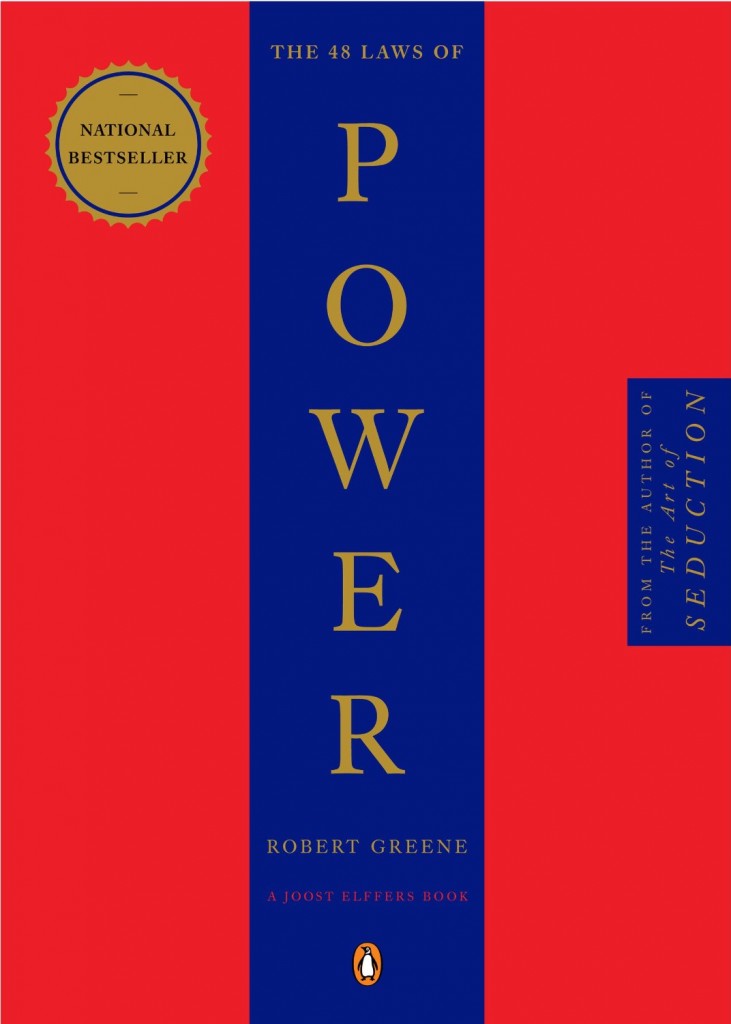 The concept of power is hard to nail down. Its meaning depends a lot on where you’re standing. Sometimes no sooner than you identify it, it’s gone.
The concept of power is hard to nail down. Its meaning depends a lot on where you’re standing. Sometimes no sooner than you identify it, it’s gone.
Said incompletely, having power means being able to get what you want.
The 48 Laws of Power by Robert Greene plays a cat and mouse game with the idea of power. Sometimes power is about being on the defensive, sometimes it’s about being on the offensive. Sometimes it’s acting powerless, when you’re really powerful, and sometimes the other way around. In no one section of text, nor the text taken as a whole, does Greene manage to wrap up the concept of power. That might be what made the book such a success when it was released in 1998.
As a slew of publications pointed out in early reviews, Greene’s laws sometimes contradict each other. They also pointed out that the laws weren’t based on scientific research, or studies. They were just one guy’s interpretation of a variety of historical events. But again, this may be the source of the book’s success.
One thing you don’t need a book to tell you is that “power” is definitely affected by the way we think about it. For a book of this nature to help people chase after and acquire some kind of power may not really depend on how right or wrong the book actually is. According to the book’s wikipedia page, some very notable people have fallen in love with the book. Jay Z, Kanye West, Drake, the CEO of American Apparel, and allegedly Fidel Castro. What’s interesting, is that everyone seems to find clarity in just one or two of Greene’s laws. That makes sense, because they aren’t as much “laws” as strategies–or better said, “moves”.
The 48 Moves of Power. It doesn’t really roll off the tongue as well. There are also probably a lot more than 48.
If we think of them less like laws and more like moves or strategies, it all makes a lot more sense and has a lot fewer contradictions. And, some moves are going to seem more relevant to some people than to others.
Greene paints a cynical and paranoid view of the world. Everyone is playing a game, vying for power of some kind. A gift is nothing more than a way for people to put you in their pocket; an encouraging word is really meant to topple the empire; The kindness of a friend is the sword they will use to destroy you.
Is he wrong? If the power is public enough, it’s hard to think not. While most of the stories Greene uses to explain his laws are from a bloodier era than our own, he cleverly uses the french “courtier” from between around 1500 to 1800 to draw the connections to modern society.
The courtier was a person who served the court of the king or ruler. Their function varied a lot. A courtier might simply be there to keep the king company, or they might’ve been in charge of artwork in the palace, or public relations. Whatever the case, the courtier’s position was one of dignity and class in a time of literal cutthroat competition for the king’s favor. The courtiers all vied for the king’s affection–for a piece of his power–and to get it, would play intricate games to conceal their real intentions and actions, careful that the person they killed, usurped or exiled wouldn’t condemn them from the grave.
Most of modern society, Greene suggests, lives in a kind of King’s court. The higher up the ladder of public interest you rise, the more deviously you would have to conceal and defend your power, and even at the lowest levels, we are not to overtly attack one another.
The 48 Laws of Power brings up more than a few ethical concerns–however, in a sense, they may not matter. If Greene’s view of the world and society that he presents in the book are accurate, to abstain out of ethical principal would only insure that manipulators with the most gnarly intent would reach the heights of power. Furthermore, to abstain out of ethical objection looks a lot like more than one of Greene’s laws (16, 18, 21).
I’m left with few conclusions after finishing the book. If nothing more, Greene has produced interesting interpretations of historical events which make the book more than entertaining. But, in addition to that, I understood and related personally to the concepts behind at least a few of his laws. If nothing else, The 48 Laws of Power reinforced the idea that it’s good to know the person you’re speaking with, competing with, looking for, whatever. To know is often better than to wonder.
It’s worth a read, if you can stomach it.

Recent Discussion